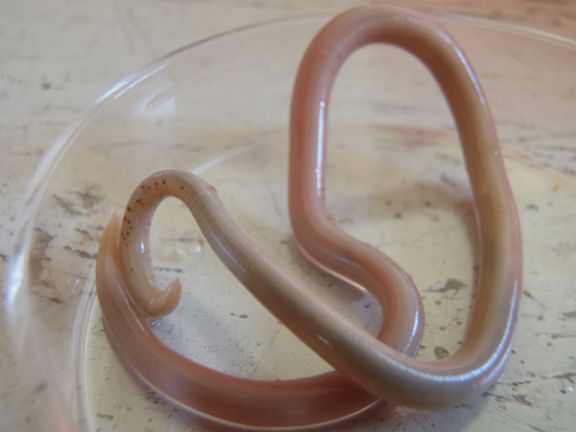Intestinal worms may affect severity of coronavirus
8 May 2020

Countries in resource-poor tropical regions may be harder hit by the COVID-19 pandemic than other areas, with many residents already suffering parasitic infections which could change how the coronavirus affects them, researchers say.
In a comment published in the prestigious journal Nature Reviews Immunology, researchers at Federation University Australia and the Peter Doherty Institute for Infection and Immunity suggest that a different disease pattern may be seen in individuals who have parasitic intestinal worms and develop COVID-19 because of effects these worms have on immune responses.
Many types of intestinal worms prevalent in tropical regions have an immunomodulatory effect on their hosts, meaning infection can change the way the immune system reacts to other pathogens. In the case of SARS-CoV-2, the virus that causes COVID-19, it is unknown whether co-infection with the parasite strengthens or weakens the immune response.
The authors, led by Federation University School of Health and Life Sciences Clinical Microbiology and Molecular Biology Senior Lecturer Richard Bradbury, say urgent research is needed to find out if infection with the helminth worm changes the severity of COVID-19.
“We already know that parasitic worms alter your immune response, they change the pathways which your immune system uses to combat other infections,” Dr Bradbury said.
“When we look at coronaviruses, viruses closely related to SARS-CoV-2 like Severe Acute Respiratory Syndrome (SARS) and Middle East Respiratory Syndrome (MERS) viruses, when they have severe presentations it often involves activation of that pathway that is activated by parasitic worms.”
 Dr Bradbury submitted the comment with Federation University researchers Associate Professor David Piedrafita and Associate Professor Andrew Greenhill, and Associate Professor Siddhartha Mahanty from the Doherty Institute.
Dr Bradbury submitted the comment with Federation University researchers Associate Professor David Piedrafita and Associate Professor Andrew Greenhill, and Associate Professor Siddhartha Mahanty from the Doherty Institute.
So far, most reported COVID-19 cases are from middle- and high-income nations, where health indicators are high and life expectancy is above the global mean. The true impact of the virus in resource-poor tropical nations remains unknown.
“Our concern is that COVID-19 is moving into Asia, Africa, Latin America and the Pacific, where infection with these worms is more widespread than in upper middle- and high-income countries, and we don’t know how the immune response to worm infection will interact with the virus,” Dr Bradbury said.
Dr Bradbury said the consequences could be serious for countries where many people were infected by the worms if the impact on immunity leads to more severe coronavirus infections.
“Our researchers from Federation University have broad experience from previous research in countries where there is a high burden of parasite infections and other infectious diseases, including in Africa, Asia and the Pacific,” Dr Bradbury said.
Authors from Federation University and from the Doherty Institute are expert immunologists who could investigate the effects of worm infections on the immune response quickly, Dr Bradbury said.
The team, together with leading scientists from these countries are exploring collaborative opportunities to investigate this potential problem.


